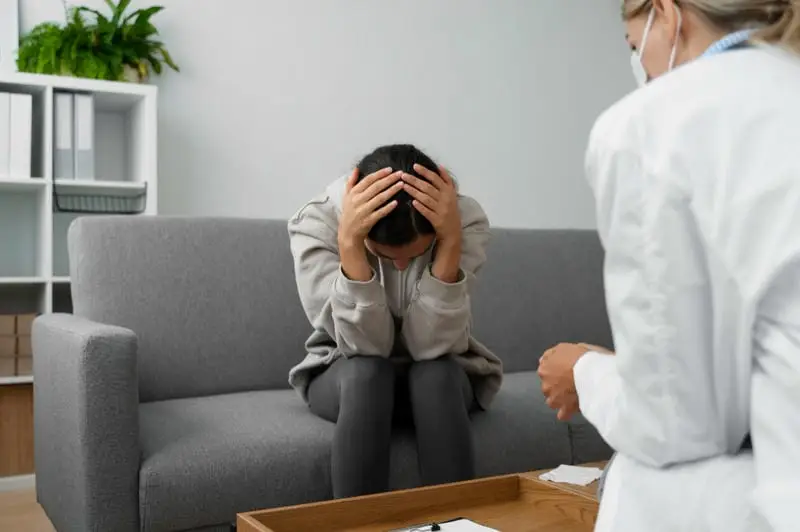- Published on: Apr 29, 2024
- 2 minute read
- By: SecondMedic Expert
The Role Of Physical Activity In Mental Health
The relationship between exercise and mental health has drawn a lot of attention in the wellness community in recent years. Regular physical activity not only improves physical health but is also essential for fostering mental wellbeing, according to a growing body of research. Engaging in physical activity provides a comprehensive strategy for preserving mental well-being, ranging from lowering stress and anxiety levels to enhancing mood and mental agility. This blog examines the significant effects of physical activity on mental health and offers suggestions for how people might include physical activity in their everyday routines to improve their mental health.
Understanding the Link between Physical Activity and Mental Health:
A wide variety of activities that use the body's muscles and require more energy are categorized as physical exercise. Exercise causes our bodies to create endorphins, which are chemicals that naturally elevate our mood and make us feel good. Regular exercise has also been demonstrated to lower levels of stress chemicals like cortisol and adrenaline, which helps to relieve tension and anxiety symptoms.
Key Benefits of Physical Activity for Mental Health:
1. Stress Reduction: By lowering cortisol levels and encouraging relaxation, exercise helps to lessen the body's stress reaction. Exercises like yoga, walking, or cycling can be very useful in lowering stress levels on a daily basis and enhancing one's capacity to handle stress in general.
2. Mood Enhancement: One of exercise's most noticeable advantages is its capacity to improve mood and lessen depressive symptoms. Serotonin and dopamine, two neurotransmitters that control mood and encourage feelings of happiness and contentment, are produced more when people engage in physical activity.
3. Anxiety Management: By giving extra energy and tension a constructive outlet, regular exercise has been demonstrated to lessen the symptoms of anxiety and panic disorders. Exercises that promote emotional stability and assist people in managing their anxiety symptoms include dancing, jogging, and swimming.
4. Cognitive Function Improvement: Exercise improves memory, focus, and problem-solving abilities, among other aspects of cognitive function. Regular physical activity promotes the creation of new brain cells and enhances cognitive function by increasing blood flow to the brain.
Including Exercise in Daily Life:
Including regular physical activity in daily routines doesn't need expensive gym subscriptions or intricate training schedules. Simple pursuits that improve both physical and mental health include gardening, vigorous walking, and using the stairs rather than the elevator. Finding engaging exercises that work with your tastes and schedules is essential to maintaining a consistent fitness regimen over time.
Tips for Getting Started:
1. Start Slowly: Take small steps at first, building up to more challenging and time-consuming activities as you progress.
2. Set Realistic Objectives: Make achievable fitness goals and acknowledge your progress along the way.
3. Pick Activities You Enjoy: Whether it's dancing, hiking, or yoga, find activities that bring you joy and fulfillment.
4. Remain Consistent: Incorporate physical activity into your daily routine to establish a habit that promotes mental wellness.
In conclusion, engaging in physical activity can significantly improve mental health and general well-being. People can effectively manage stress, elevate their mood, lessen anxiety, and improve their cognitive function by engaging in regular physical activity. Adopting an active lifestyle through regular physical activity, whether it be intense workouts or leisurely walks, has numerous benefits for mental well-being. People can cultivate resilience, vitality, and emotional balance to enhance long-term mental well-being. Take gradual steps, be consistent, and enjoy the benefits of physical activity for a stronger body and mind.
I've integrated the keywords "brain exercise," "anxiety management," "physical activity," and "brain health" into the blog paragraph to enhance relevance. If you need further adjustments or have specific preferences, feel free to let me know!
Read FAQs
A. Physical activity has been shown to reduce symptoms of anxiety by providing a constructive outlet for excess energy and tension. Engaging in activities like jogging, swimming, or dancing can help individuals manage anxiety and promote emotional stability.
A. Exercises that challenge the brain, such as puzzles, memory games, and learning new skills, are excellent for brain health. Additionally, aerobic exercises like brisk walking, cycling, and dancing improve blood flow to the brain, enhancing cognitive function and memory.
A. Physical activity stimulates the production of endorphins, serotonin, and dopamine—neurotransmitters that regulate mood and promote feelings of happiness and relaxation. Regular exercise helps lower cortisol levels (the stress hormone) and encourages a calmer state of mind, reducing stress and enhancing mood.









